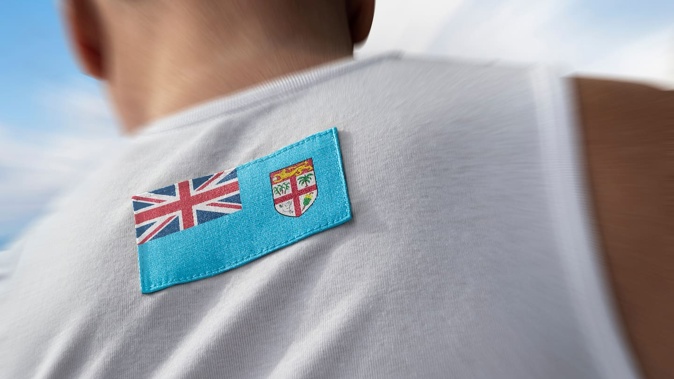

A teenage Fijian national with epilepsy and significant delayed milestones is being deported from New Zealand, leaving him faced with being separated from his family who have said they may not go with him.
The family moved to New Zealand in 2023 for a better life but immigration officials have ruled the 15-year-old can not stay because he would burden the country’s special education system.
Although his family is his only support for daily functioning, they are prepared to remain in New Zealand where they earn a higher income.
But Rajendra Chaudhry, the lawyer for the family, who can not be named, told NZME that separation was not the outcome they wanted and they were prepared to fight to have him stay.
“His mother is in tears all the time,” Chaudhry said this week.
“They will have to make some hard decisions if this matter is not satisfactorily dealt with. I think the rules are quite onerous.”
Chaudhry spoke with NZME following the recent release of the deportation decision by the Immigration and Protection Tribunal New Zealand.
 The Immigration and Protection Tribunal has heard a teen's plea to remain in New Zealand.
The Immigration and Protection Tribunal has heard a teen's plea to remain in New Zealand.
The decision detailed the teen has epilepsy but it was well-managed with daily medication and he has not had a convulsion for three years nor has he had to see a doctor in New Zealand about the condition.
He also has intellectual or cognitive impairments which present as significant developmental delays. The decision stated that while there has not been a formal diagnosis, a New Zealand psychologist found his symptoms related to the diagnostic criteria for autism spectrum disorder (ASD).
The teen has no foundational reading, writing or maths skills in Hindi or English and would require significant support with learning and social and adaptive skills.
Information from his former primary school in Fiji, a Fijian education adviser, and a New Zealand educational assessment detailed he required full supervision for safety reasons, struggled to follow the standard curriculum, struggled socially and to pay attention, and was short-tempered and aggressive in the classroom.
It also stated he was a calm-natured boy attached to the people who supported him.
The decision recorded he was born in Fiji and lived there with his parents and sister until his father moved to New Zealand in 2022.
The following year, the teen and his mother and sister arrived in New Zealand as holders of six-month student and work visas granted based on their relationship with the father.
Later that year, the father was granted a three-year work visa and the teen, mother and sibling made further temporary visa applications, which were granted to the mother and sister.
However, Immigration New Zealand declined the teen’s application, ruling he had an unacceptable standard of health.
It was believed he would likely impose significant costs or demands on New Zealand’s special education services. He is not currently in school.
The appeal against deportation
After the teen’s interim visa expired mid-last year, leaving him living in the country unlawfully, his family launched a humanitarian appeal to the Immigration and Protection Tribunal New Zealand against his liability for deportation.
Chaudhry submitted it was in the teen’s best interests to stay because if he must return to Fiji, he would be separated from his family.
“This is because his family wishes to stay in New Zealand. His parents are not likely to follow him to Fiji, and counsel has suggested that the appellant’s sister may return with him, or he will return alone,” the decision stated.
“The reason for this arrangement is that, in New Zealand, the parents earn a higher income and hope to be able to apply for residence.”
Chaudhry told the tribunal that despite the teen’s delayed cognitive function, he managed “sufficiently well” with the support of his parents.
However, if deported, he could not care for himself.
The tribunal heard the family had no remaining ties in Fiji, no real property and all close family members were in New Zealand, including the teen’s grandparents and aunts and uncles.
Chaudhry submitted he was settled in New Zealand and would not be a financial burden because his parents have self-funded his care since arriving.
But the tribunal questioned how settled he was, considering he had not become attached to a school or social environment.
It acknowledged he was highly reliant on his family and would require significant support at home, in an educational setting, or beyond, irrespective of whether that was in Fiji or New Zealand.
The tribunal recognised his best interests were served by living in a settled and familiar environment, supported by family or someone familiar.
“While the family wishes that to be in New Zealand, the tribunal finds that to remain in New Zealand is not necessarily in the appellant’s best interests. His best interests can also be served by returning to Fiji.”
Separation would be the parents' decision
In declining the appeal, the tribunal found there were no exceptional circumstances of a humanitarian nature.
“The appellant’s family members only have temporary visas to remain in New Zealand. They are all citizens of Fiji and are able to return there and work, as they have done before.
“The fact that they would prefer not to, because of the opportunities in New Zealand, and would send the appellant home by himself or with his sister, is a matter for them to consider.
“In essence, any separation of the family unit would come about because of his parents’ decision to remain in New Zealand and continue their lives here without him.”
The tribunal granted the teen a six-month visitor visa, which expires in May, so he and his family could make the appropriate care arrangements for him in Fiji.
However, speaking with NZME, Chaudhry said the family’s options were not yet exhausted, including making a representation to the Minister of Immigration.
“The father qualifies for residency in November so, sometimes the minister does have a sympathetic heart and may say ‘look we’ll sort of stretch this out'.
“In the meantime, the father then qualifies for residence and once he gets that, of course, it then changes the goalposts.”
Chaudhry said the rules were different for someone who holds residence and the teen’s assessment may change in those circumstances.
Tara Shaskey joined NZME in 2022 as a news director and Open Justice reporter. She has been a reporter since 2014 and previously worked at Stuff covering crime and justice, arts and entertainment, and Māori issues.

Take your Radio, Podcasts and Music with you









